Today I’m going to take you through my philosophy on how to respond to an ex who hurt you.
I’m going to be answering questions like,
- Should you even respond to an ex who hurt you?
- Situations in which you should never be trying to “win” this person back
- The trouble with having an emotional conversation too soon
- The importance of the value ladder concept
- How to actually build value before you respond to an ex
- Training yourself to look at conversations differently
I always hate writing these intros. Let’s cut right to the chase.

What Are Your Chances of Getting Your Ex Boyfriend Back?
Take the quizShould You Respond To An Ex Who Hurt You?
The answer to this will depend on your goals.
- If you want to get them back, there’s one answer
- if you want to move on, there’s another.
For example, if you are planning to move on, my advice would be not to respond to your ex, if possible, and simply focus on moving forward. This may seem harsh, but I’ve found it’s one of the most effective methods for helping people get over breakups.
Of course, if you want to stay cordial with your ex or get your ex back, you have to respond and communicate with your ex in a specific way.
However, before discussing that, I think it’s important to cover situations where you should not attempt to get this person back.
Many people in the industry gloss over this since we are trying to help people, but the best way to help is to help them understand that there are circumstances where you should never try to get your ex back.
Situations In Which You Should Not Be Trying To Get This Person Back
There are really three major categories to consider
- Physical Abuse
- Emotional Abuse
- Narcissistic Abuse
Without a doubt the most “buzz-worthy term” among these three categories is ‘narcissistic abuse.’
And yes, I’ve even created graphics detailing what these individuals do,
However, I’ve found that it’s more common for our clients to experience physical or emotional abuse than narcissistic abuse.
It’s rare to find that our clients are dealing with narcissists.
A very small percentage of the entire population is diagnosed as narcissistic. But the reason we don’t recommend getting back with a narcissist is the inherent difficulty in changing them.
They don’t view people as individuals, but as sources of supply.
(See graphic above)
I’ve talked about this in the past with my concept of the ‘narcissistic supply Rolodex.’
They typically have a collection of individuals they turn to when they need certain needs met,
- Which could be sexual
- Emotional
- Or even something as mundane as needing someone to spot them at the gym.
They view people as sources of supply rather than actual human beings. I would never recommend getting back with such individuals.

What Are Your Chances of Getting Your Ex Boyfriend Back?
Take the quizThis may not be a popular answer for some clients determined to get their exes back, but we need to draw a line and establish boundaries.
Now, let’s say you do want your ex back.
Should you respond to them?
Revisiting The Should You Respond To An Ex Who Hurt You Question (With More Context)
Yes, I think you should.
The whole point of this discussion isn’t just about responding, it’s also about THE timing of your respond.
In fact, I’d argue it is more critical than what you actually say.
People often get seduced by the clever phrasing of a text message that elicits an immediate response.
However, I’ve found that this isn’t as significant as the context leading up to the text message.
The key is to create an environment that makes it more likely for your ex to be receptive towards talking to you and building value with you.
That’s where the challenge lies, as initiating an emotional conversation too soon can cause problems.
The Trouble With Having An Emotional Conversation Too Soon
This is one of the reasons why I think you should wait a bit before responding to an ex who has hurt you.
I’d argue that the best initial response to an ex who hurt you is silence.
Allow for a break, implement a period of no contact.
We’ve seen cases where people try to engage in emotional conversations with their exes too soon, and it usually ends up triggering either a flight or fight response.
This largely depends on your ex’s attachment style.
For instance, if your ex has a dismissive avoidant attachment style, which is common among our clients’ exes, attempting an emotional conversation often triggers their avoidant tendencies, causing them to withdraw. You’ll experience a lack of responses and find them disinterested in communicating.
On the other hand, if your ex has a fearful avoidant or anxious attachment style, an emotional conversation can make them react emotionally or become anxious, engaging their fight response. This could lead to arguments.
So, the real question that forms the core of this discussion is: what should you do when an ex who has hurt you reaches out?
It’s likely that you’ll need to respond at some point, but the timing of your response is probably more critical than what you say.
The Value Ladder Concept
This is our value ladder,
It’s essentially a snapshot that I’ve created to help illustrate the usual steps required for successful responses from exes, ultimately leading to winning them back.
Think of it like climbing a ladder to rebuild a connection with your ex.

What Are Your Chances of Getting Your Ex Boyfriend Back?
Take the quiz- You start with the no-contact rule.
- Once you’ve built enough value there, you advance to the texting phase.
- As you accumulate value in each stage, you progress to the phone call phase, and then the meetup phase.
- So on and so forth
However, the tricky part is understanding that building value differs with each phase.
Building value during the no-contact rule is significantly different than during the texting phase, just as it is in the phone call or meetup phases.
What’s fascinating about this concept is that it aligns with the 7-38-55 rule.
Drawing from Masterclass – as clichéd as it may sound –
This rule pertains to the communication of emotions, stating that 7% of meaning is communicated through spoken word, 38% through tone of voice, and 55% through body language. Developed by Psychology Professor Albert Mehrabian at the University of California, Los Angeles, this concept was presented in his 1971 book, ‘Silent Messages.’
If you look closely at the value ladder I’ve described, you’ll notice that the 7-38-55 rule is in full effect after the no-contact rule:
- 7% of communication is via text, where your ex can only read your words;
- 38% through the tone of voice in phone calls;
- And 55% through body language during in-person meetups.
There’s a cumulative effect to the value ladder, wherein the previous stages add to the value of the current one.
Let’s say you’ve finished the no-contact phase and moved on to texting.
The 7% of written communication in the texting phase gets added to the 38% from the tone of voice in phone calls, making it 45%.
Once you reach the meetup phase, you unlock an additional 55%, allowing you to communicate messages to your ex with 100% effectiveness.
But let’s not get ahead of ourselves. Our primary focus is on how to handle situations when your ex has hurt you, particularly within the context of the no-contact and texting phases.
In my opinion, understanding how to build value in these initial stages is where it all starts.”
How To Build Value During The No Contact Rule
It all starts, of course, with completing the no-contact rule.
How do you build value during no contact?
I’ve always been struck by how most people who have successfully won back their ex through our program adopted a growth mindset during the no-contact rule.
This observation led me to alter our official definition of the no-contact rule.
It was traditionally a strategy that involved ignoring your ex, which we believed would make them miss you. However, we found that it’s not the act of ignoring your ex that makes them miss you, but rather their witnessing of your growth from afar. This realization can trigger a sense of nostalgia in them and make them feel safe to start missing you.
Therefore, if you wish to build value and progress to the texting phase, your goal should be to outgrow your ex.
You can see one of our success stories talking about that here,
The best advice I can give here is to find something that you care about as much as your ex and focus on that.
Now, a slightly controversial point is that you’ll likely need to be the one to reach out to your ex first.
We’ve polled our community and found that upwards of 60% of clients who implemented the no-contact rule were not contacted by their ex during that period.

What Are Your Chances of Getting Your Ex Boyfriend Back?
Take the quizConsequently, most will need to initiate contact, which can be challenging for those unaccustomed to making the first move.
However, remember that it’s not about who starts the conversation, but who ends it.
To prove that point I’d like to point to the Zeigarnik effect, a psychological principle that suggests that people remember interrupted or incomplete tasks better than completed ones.
Therefore, starting a pleasing conversation with your ex and then abruptly ending it can make the interaction more memorable.
Something like this typically works well,
Basically if you end at the high point of the conversation it really does a great job triggering that zeigarnik effect.
And to further prove this point that it’s ok for women to reach out first, I found this survey cited by CBS News that found that 95% of men prefer women to initiate the first kiss or ask for their number. However, only about 25% of women actually do so.
Training Yourself To Look At Conversations Differently
Once you’ve started a conversation, your goal is to gradually build value during the texting phase.
This is where the ‘big talk’ concept comes in, which promotes more meaningful conversations.
Kalina Silverman is essentially the pioneer of ‘big talk’.
She argues that many of our conversations with strangers or potential love interests start with small talk such as, ‘How’s the weather?’ or ‘Did you see the game last night?’ Instead, she proposes engaging in big talk topics.
What are some examples of big talk topics?
Essentially, they involve asking more profound, open-ended questions that provoke conversation.
If you look at Kalina Silverman’s website, particularly her ‘About’ page, she provides an excellent example of a big talk question:
‘What do you want to do before you die?’
Her answer is,
‘Before I die, I want to build a ranch that employs refugees fleeing conflict zones and provides fun, educational opportunities for visitors. I also hope to raise a family, paint a mural, and compose music.’
This is a perfect example of big talk. Notice how the question itself, ‘What do you want to do before you die?’ prompts the other person to genuinely consider their life goals.
However, you should not spring these types of questions on your ex right away in the texting phase.
You need to gradually build up to them.
There’s a small value build within the texting value rung itself. But once you’ve built up to it, and if they’re receptive, you can continue ascending the ladder. In my opinion, this is the best way to respond to an ex who has hurt you, especially if you wish to win them back.
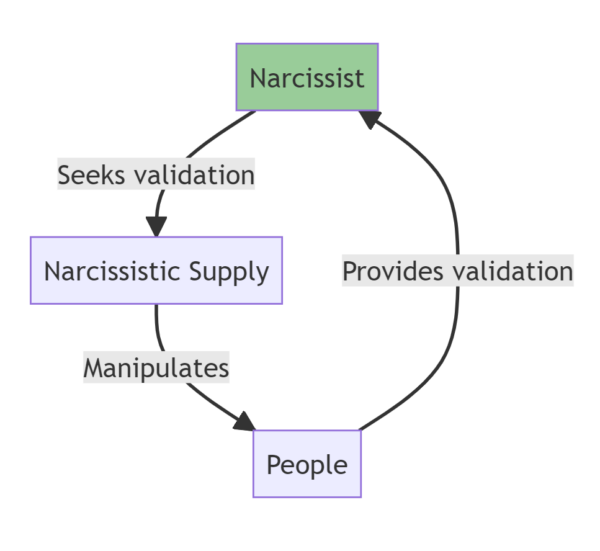
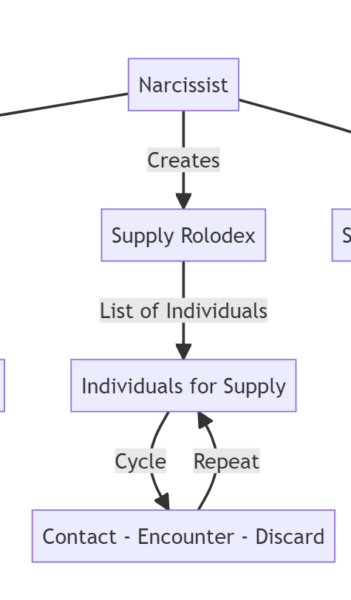
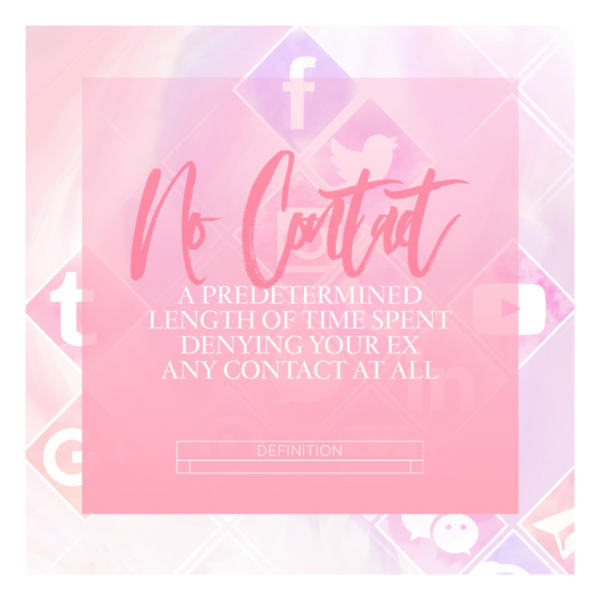
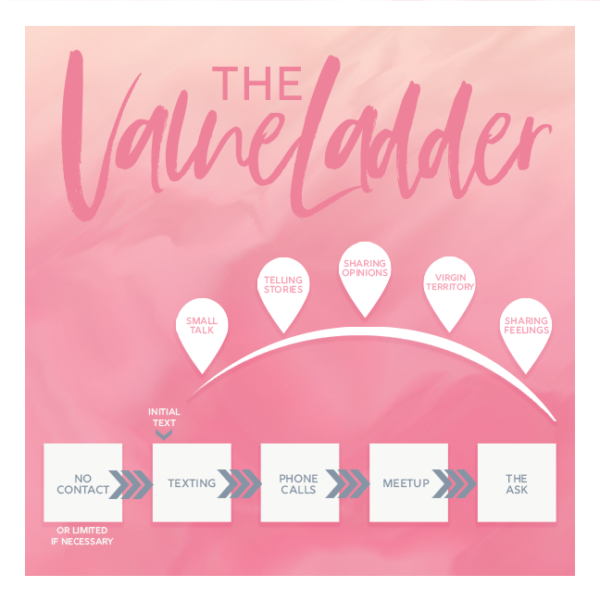
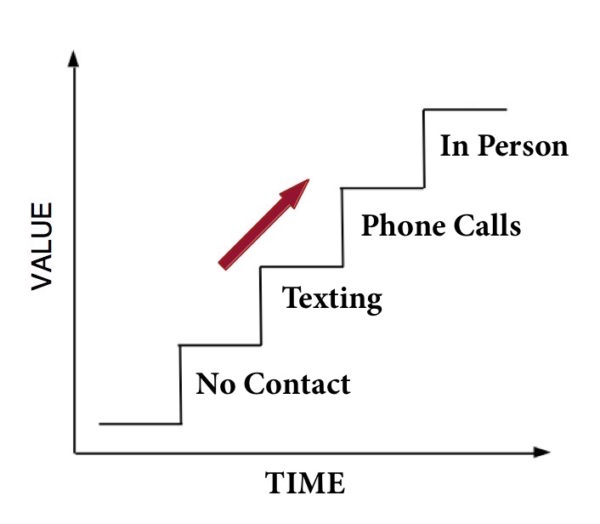
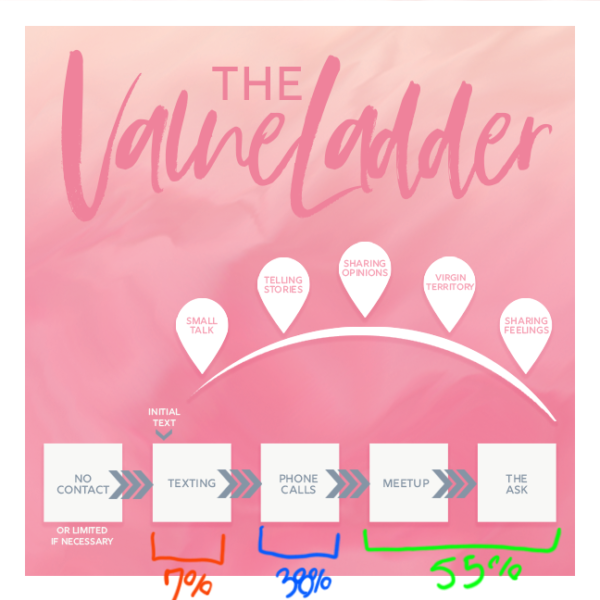
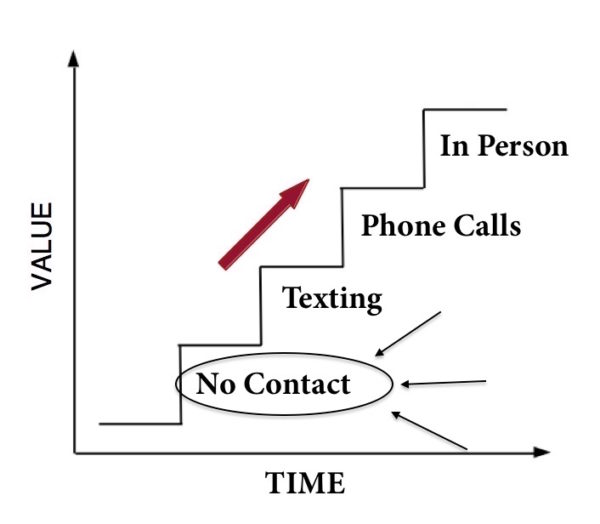
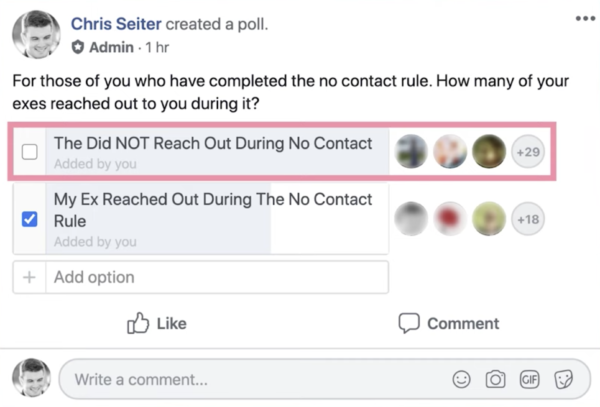
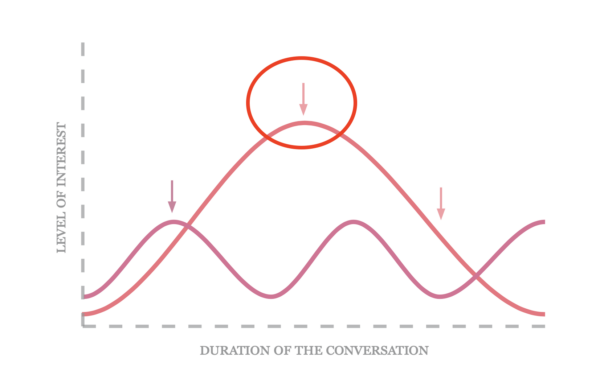

Enilec
August 8, 2024 at 3:29 pm
How to you build small value build within the texting phase before the “big talk”.
Also, how long shud the no contact phase be?
Vivianna Martin
July 28, 2024 at 6:03 pm
I’ve done this dance for several years. And I believe your strategy would have worked if I would have worked on my anxious attachment first. I got triggered which trigger him to call me a sorry SAP. After that I text some very mean and attacking things. I really need to work on me and forget about being careful of his dismissiveness. for them I could have not taken his comment so personal.